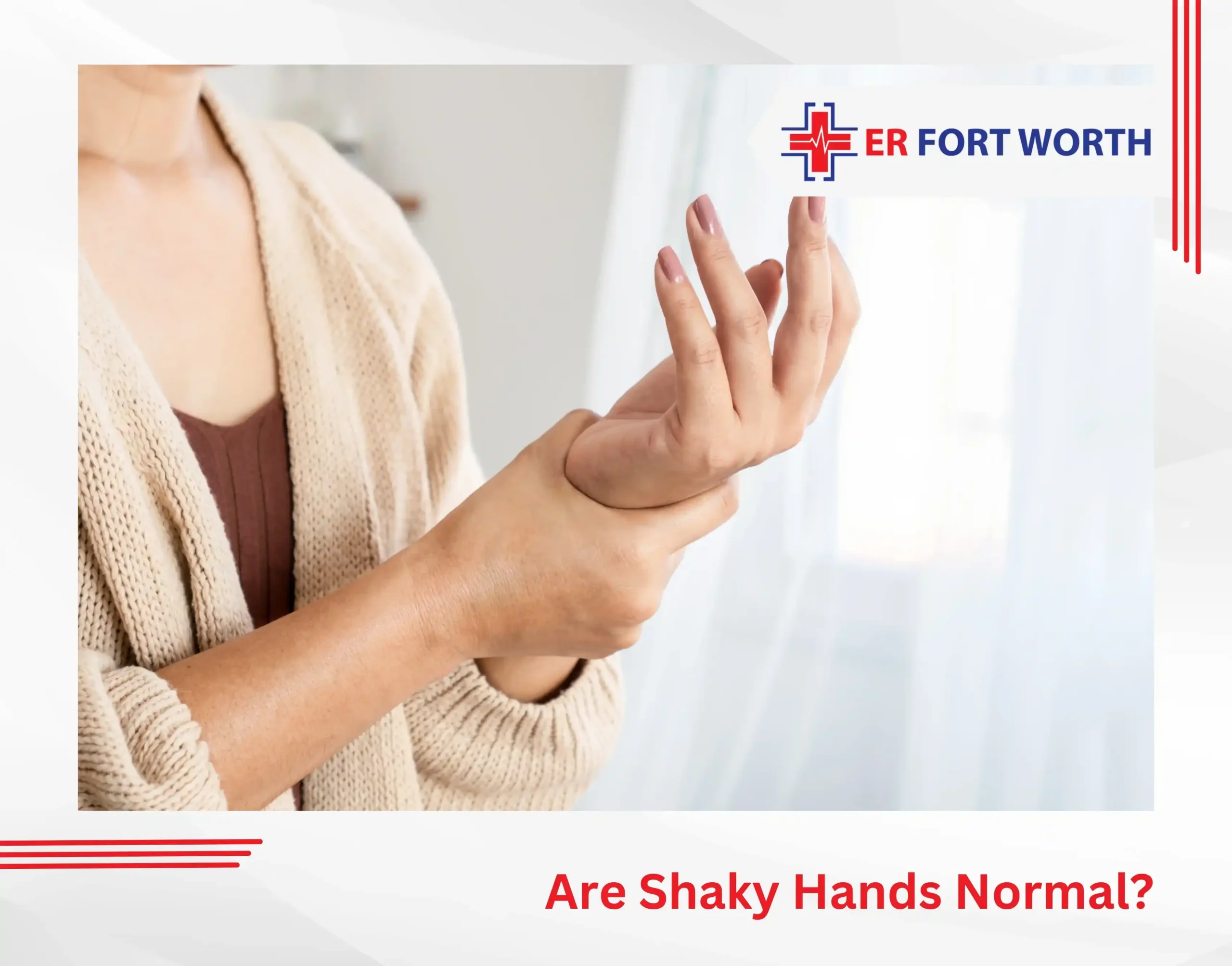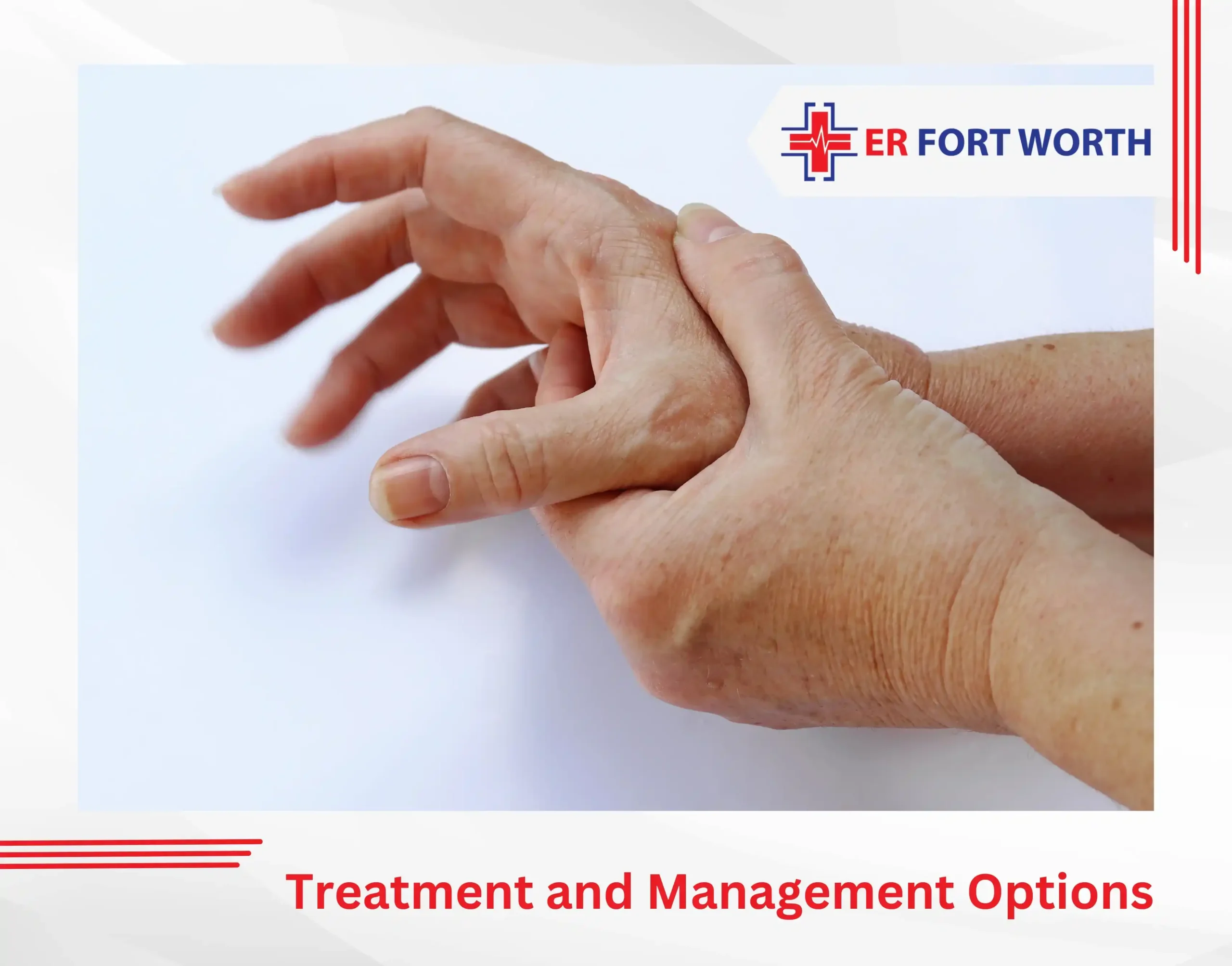You’re lining up the perfect selfie at the Stockyards, and your fingers shake just enough to blur the picture. Annoying, right? Sometimes, Hands Shaking isa normal response to stress, nerves, or excessive caffeine intake.
Other times, they can point to bigger issues: thyroid problems, medication side effects, or early Parkinson’s. You won’t know which category you fall into until you know the causes.
If it’s something harmless, you get peace of mind and a simple fix: better sleep, less caffeine, steady meals. And if it’s something serious, you spot it and get early treatment.
So let’s dig into why my hands are shaking, what’s usually harmless, and when it’s smart to get it checked.
Are Hands Shaking Normal?

Yes, many hand tremors are normal. Hand tremor is the medical term for rhythmic shaking of the hands. Every human has a tiny baseline “physiologic tremor.” You rarely notice it until it’s amplified by caffeine, stress, low blood sugar, or insufficient sleep.
If your hands calm down once those things improve, it’s often an enhanced physiologic tremor, not a disease.
Why Are My Hands Shaking: 5 Harmless Reasons
The following causes of shaking are linked to lifestyle, emotions, or temporary states of the body:
1. Stress and Anxiety
When you’re nervous or anxious, your body releases stress hormones. These chemicals prepare you for “fight or flight” by increasing heart rate, breathing, and muscle readiness. One side effect: your hands may tremble. Public speaking, interviews, or high-pressure situations often bring this on.
2. Lack of Sleep
Lack of rest throws off your nervous system balance. If you’ve had several sleepless nights, don’t be surprised if your hands shake more than usual.
3. Hard Exercise
Overtired muscles lose stability. So if your muscles can quiver for a bit after a tough workout, it’s natural.
4. Caffeine or Energy Drinks
Coffee, energy drinks, nicotine from smoking, and certain medications stimulate your nervous system. That extra boost makes your hands unsteady.
5. Hunger or Low Blood Sugar
You skipped breakfast, and now it’s 1 p.m. Your blood sugar drops, and your brain and muscles don’t get steady energy. This can make your hands shaky, often paired with sweating or dizziness. Eating restores balance.
If your shaking shows up with one of these triggers and fades when you fix the trigger, that’s a good sign.
Why My Hands Shaking: 6 Medical Causes
When shaking persists or becomes stronger, it may point towards any of the the following medical conditions:
1. Essential Tremor (ET)
This is one of the most common causes of shaky hands. Essential tremor is a nervous system condition that shows up when you use your hands, like lifting a cup or writing, not when they’re at rest. It often runs in families and can get more noticeable with age.
2. Parkinson’s Disease
PD tremor is classically at rest, often starting on one side. Your hand shakes when it’s sitting still, then eases with purposeful movement. There can also be stiffness, slower movement, gait, or handwriting changes (micrographia). This is more common in older adults.
3. Hyperthyroidism
An overactive thyroid gland speeds up metabolism. This can cause shaky hands, plus heat intolerance, palpitations, weight loss, anxiety, and poor sleep.
4. Medication Side Effects
Certain drugs, including asthma inhalers, antidepressants, and anti-seizure medicines, may list tremors as a side effect. If shaking started after a new prescription, your doctor may adjust the dose or switch medications.
5. Alcohol or Drug Withdrawal
Shaking hands is a well-known sign of alcohol, certain sedatives, or recreational drug withdrawal. These tremors usually improve once withdrawal is treated under medical supervision.
6. Other Neurologic or Metabolic Causes
Past stroke, multiple sclerosis, peripheral neuropathy, or metabolic shifts (notably glucose/electrolytes) can cause tremor. These usually come with other symptoms (numbness, weakness, coordination issues).
Notice the pattern: when the shaking happens, why my hands are shaking, what makes it better or worse, and what else is going on. It helps with diagnosis.
Risk Factors That Make Tremors More Likely
Some people are naturally more prone to shaky hands. Factors that increase risk include:
- Age: Tremors become more common as we get older.
- Family History: Essential tremor often runs in families.
- Chronic Health Issues: Diabetes, thyroid problems, and neurological disorders raise risk.
- Lifestyle Factors: High caffeine intake, smoking, alcohol use, or poor sleep patterns make tremors worse.
When Should I See a Doctor for Shaky Hands?

See an emergency care if any of these signs ring:
- The tremor is new and getting worse
- It’s only in one hand and mostly happens at rest
- You also have stiffness, slower movement, or your handwriting is shrinking and looks cramped
- Tremor with weight loss, heat intolerance, palpitations, anxiety/insomnia
- New tremor after starting a new medication or during alcohol/sedative withdrawal
- The tremor showed up suddenly with weakness, numbness, slurred speech, or vision changes
Diagnosis of Hand Tremors
When you reach emergency care, a doctor will likely run tests to identify the causes of shaking. The evaluation usually involves:
- Medical History & Symptom Review: When the tremors started, how often they happen, and what makes them better or worse.
- Physical & Neurological Exam: Checks muscle strength, reflexes, coordination, and movement patterns.
- Blood Tests: To check thyroid function, blood sugar, and other possible imbalances.
- Imaging (MRI or CT Scan): If a neurological issue is suspected.
- Medication Review: Identifying drugs that may contribute to tremors.
Treatment and Management Options

Many causes of shaky hands are manageable. Treatment of “why my hands are shaking” depends on the underlying condition. Common strategies include:
Lifestyle Adjustments
- Reducing caffeine and alcohol
- Getting enough rest
- Managing stress
- Eating regular, balanced meals to avoid low blood sugar
Medications
Doctors may prescribe:
- Beta blockers (e.g., propranolol) for essential tremor
- Anti-seizure drugs like primidone, in certain cases
- Parkinson’s medications, such as levodopa
- Thyroid treatments to stabilize hormone levels
Therapies
- Physical therapy helps with muscle control and coordination.
- Occupational therapy teaches ways to adapt to daily tasks.
Final Thoughts
Many tremors can be managed with lifestyle changes, medication, or therapy. If you’ve been wondering “why my hands are shaking” and it’s starting to interfere with your daily life, it’s always smart to consult a healthcare professional.
At ER Fort Worth, we check vitals, run basic bloodwork (like thyroid and electrolytes), review medications, and look for red flags. If you need a specialist, we’ll point you in the right direction.
Your hands are vital tools for living and working, so keeping them steady matters.




